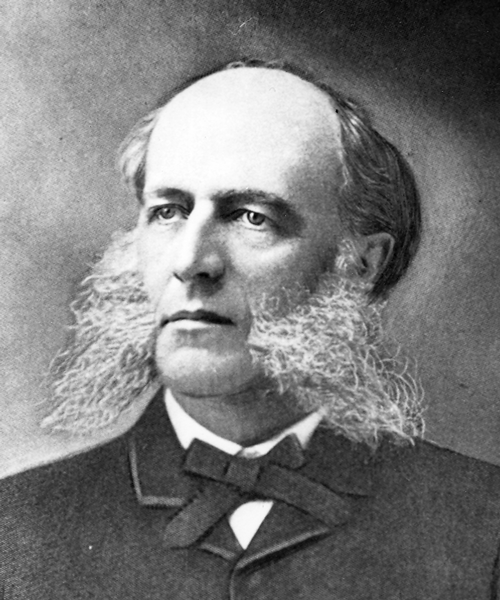A. E. Scott, President of the Lexington Historical Society
Nichols’ review of Whitmore is cited in the last article that was written about the source of Lexington’s name. The author was Augustus Elwin Scott, an eminent citizen of Lexington who had, after nearly six years as the principal of Lexington High School, earned a law degree and practiced law in Boston. He represented Lexington in the state legislature first as a representative and then as a senator, helped found the Lexington Savings Bank, and took an active part in local civic and business affairs. As the Lexington Historical Society‘s first president, he contributed his article on the naming of the town to the first volume of the Society’s proceedings, published in 1890.
Scott’s short article surveys the “state of the question” quite thoroughly. He begins by describing Hudson’s theory, and Whitmore’s objections and alternative theory. Scott points out the obvious difficulties raised by Whitmore’s having to rely so heavily on the slender evidence of coincidence, and concludes “that the theory that Lexington, Mass. was named directly after Laxton, England, although very ably advanced, is open, I think, to quite as serious question as the theory of Mr. Hudson that it was named directly from Lord Lexington.”
The article goes on to describe Nichols’ criticisms of the Whitmore theory with evident approval, but ultimately Scott offers a rather bland conclusion:
Scott’s short article surveys the “state of the question” quite thoroughly. He begins by describing Hudson’s theory, and Whitmore’s objections and alternative theory. Scott points out the obvious difficulties raised by Whitmore’s having to rely so heavily on the slender evidence of coincidence, and concludes “that the theory that Lexington, Mass. was named directly after Laxton, England, although very ably advanced, is open, I think, to quite as serious question as the theory of Mr. Hudson that it was named directly from Lord Lexington.”
The article goes on to describe Nichols’ criticisms of the Whitmore theory with evident approval, but ultimately Scott offers a rather bland conclusion:
Although we are left by this interesting discussion in some doubt as to the direct origin of the name as applied to our town, the primary source [that is, the place name, regardless of who chose it or why] seems undisputed; and, aside from the benefit to be derived from the research and discussion, it seems to be of little moment whether the name comes from Lord Lexington or from Laxton, the manor from whence the title sprang.
He’s correct, of course, in supposing that life on earth, and even in Lexington, Massachusetts, will probably continue in its usual course without a definitive answer to this question, but his paper could reasonably have supported a somewhat less diplomatic position without violating the standards of academic good taste.
(…continued—Click Next below.)
